
In the early mornings along Florida's coasts, you can hear the distinct cavernous pop of snook feeding on silvery finger mullet near the edge of a mangrove stand. The snook, hiding along the tangled knot of roots and branches, use the mangroves as ambush cover. That deep pop is distinct from the splashing of shouldered redfish that shake the mangrove branches as they forage for crabs and shrimp. When the finger mullet come into view, those same redfish will churn the water into thunderous boils. The mullet leap frantically away from the onslaught, darting into the cover of the roots. Whether in Florida, Texas or even Hawaii, mangroves are incredibly productive habitats for targeting many kinds of fish. Anglers who understand mangrove ecologies are better able to develop strategies for fishing these highly productive habitats.
Mangroves are trees that have adapted to high-salinity coastal environments where other trees cannot survive. They are halophytes, saltwater-tolerant plants. Their roots and leaves can filter out as much as 90 percent of the salt from salt water. Mangroves' unique root systems spread widely, giving them added support on wet, unstable ground. Those masses of roots effectively draw nutrients from the coastal soil and sand.
Mangrove roots also serve as natural barriers for shorelines, trapping sediment that functions like an embankment along the coast, staving off coastal erosion. They also store carbon in their leaves, which then fall into the water and trap the carbon in the coastal soil, known as blue carbon. Though they grow on only 0.1 percent of Earth's surface, mangrove forests store nearly 10 times as much carbon per hectare as other land-based trees.
This story is from the May 2023 edition of Salt Water Sportsman.
Start your 7-day Magzter GOLD free trial to access thousands of curated premium stories, and 9,000+ magazines and newspapers.
Already a subscriber ? Sign In
This story is from the May 2023 edition of Salt Water Sportsman.
Start your 7-day Magzter GOLD free trial to access thousands of curated premium stories, and 9,000+ magazines and newspapers.
Already a subscriber? Sign In
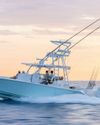
Jupiter 40
The new Jupiter 40 shines brightly amid an increasingly crowded orbit of similar-size offshore center-console fishing machines.
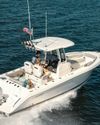
Pursuit S 248 Sport
The new S 248 Sport offers a versatile alternative to the growing number of mega-size, multi-outboard center-console fishing boats.

Pressing Pause
MAKING THE MOST OF THE TIDE'S RUNNING-SLACK PERIODS WILL UP YOUR GAME.
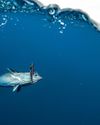
NEED FOR SPEED
SPEED-TROLLING WITH DIVING LIPLESS PLUGS HAS EMERGED AS THE NEXT BIG THING FOR FINICKY PACIFIC BLUEFIN TUNA.
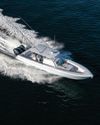
FISH WIDE OPEN
TODAY'S NEW BREED OF HIGH-PERFORMANCE OUTBOARD BOATS EXPANDS ANGLING HORIZONS
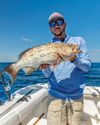
FLORIDA KEYS OVERNIGHTER
THE DRY TORTUGAS IS NO LONGER THE FINAL FRONTIER, BUT THE BOTTOMFISHING IS STILL WORTH THE TRIP.
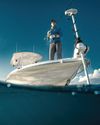
A Quiet Revolution
Brushless saltwater trolling motors turn up the efficiency and turn down the noise.

The Right Propeller
Changing out your props? Here are five things to know first, straight from the experts.
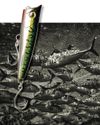
Topwaters for Every Speed
There's nothing better than watching a fish slam a plug as it rips across the water's surface.
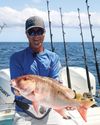
Don't Let Current Ruin Your Bottom-Fishing Trip
Lengthen your soak time with this fast-current bottom rig.